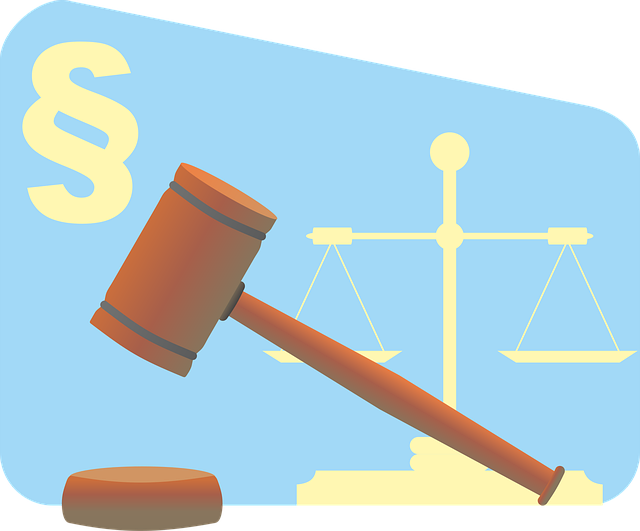Mastering Class Actions: Legal Strategies for Resolution Success

Securities class actions address investor losses due to corporate misconduct, with legal representat…….
In the intricate web of legal systems worldwide, administrative hearings stand as critical components, ensuring fairness and accountability in government decision-making processes. At the heart of these proceedings lies a vital aspect: legal representation. This comprehensive article delves into the realm of legal representation within administrative hearings, exploring its multifaceted nature, global implications, and the ongoing evolution shaped by technological advancements and changing economic landscapes. By examining various facets, from historical foundations to contemporary challenges, readers will gain insights into the crucial role legal representatives play in safeguarding rights and promoting procedural justice.
Definition and Core Components:
Legal representation in administrative hearings refers to the process where individuals or entities, often lawyers or law firms, act on behalf of clients during official government proceedings. These hearings are typically non-judicial, yet they possess significant legal ramifications, as they shape policies, decisions, and rights of citizens, businesses, and organizations. The core components include:
Historical Context and Significance:
The concept of legal representation in administrative hearings has evolved over centuries, reflecting societal changes and the growing complexity of governance structures. Historically, these proceedings were often devoid of formal representation, leaving individuals to navigate bureaucratic labyrinths unaided. However, as governments expanded their reach and powers, the need for structured representation became evident. The rise of modern legal professions in the 19th and 20th centuries further solidified this development.
Today, legal representation is indispensable in administrative hearings due to several reasons:
Global Landscape:
The presence of legal representation in administrative hearings is a universal phenomenon, albeit with variations across jurisdictions. Common law countries generally embrace a robust system where lawyers play an active role, while civil law systems may exhibit more limited representation, influenced by their unique legal traditions. However, several global trends emerge:
| Region | Legal Representation Trends |
|---|---|
| North America | Strong emphasis on lawyer involvement, with specialized administrative law practices. |
| Europe | Varied approaches, with some countries allowing direct access to hearing for certain cases. |
| Asia Pacific | Increasing demand for legal representation due to economic growth and complex regulations. |
| Middle East & Africa | Emerging markets showing growing adoption, but variations in legal frameworks. |
The global impact of legal representation in administrative hearings is profound, shaping governance models and citizen engagement. Here are some key trends and observations:
Access to Justice: In many developing nations, the presence of legal representatives facilitates access to justice, empowering citizens to challenge government decisions. This trend aligns with international goals of ensuring procedural fairness and rule of law.
Specialization and Expertise: The rise of specialized administrative law practices globally underscores the growing complexity of hearings. Lawyers develop expertise in specific areas, such as environmental, health, or immigration law, enabling them to navigate niche regulatory environments.
Technology’s Influence: Global digitalization has a significant impact. Online hearing platforms and e-filing systems streamline processes, while video conferencing expands access to legal representation, especially in remote regions.
Cross-Border Collaboration: With globalization, administrative bodies often engage in cross-border interactions, leading to collaborative efforts in legal representation. This is particularly evident in international trade disputes, where lawyers from different jurisdictions work together to represent clients effectively.
The economic dimension of legal representation in administrative hearings is multifaceted, impacting various sectors and the broader economy:
Market Dynamics: The demand for legal services in this domain drives a significant segment of the global legal market. According to a 2022 report by Legal Business (LB), ‘Administrative Law’ is among the top practice areas for law firms worldwide, with revenue projections exceeding $35 billion by 2025.
Investment and Legal Fees: Clients invest substantial financial resources in legal representation, reflecting its importance. Fees vary based on factors like case complexity, jurisdiction, and lawyer experience. For instance, a simple licensing hearing might cost a few thousand dollars, while intricate regulatory challenges can attract fees in the hundreds of thousands.
Economic Systems and Legal Services: In many economies, legal services are integral to regulatory frameworks, ensuring compliance and accountability. Well-functioning administrative hearings, facilitated by competent legal representation, contribute to stable and predictable business environments, fostering investment and economic growth.
Technology has revolutionized legal representation in administrative hearings, enhancing efficiency, accessibility, and outcomes:
Online Hearing Platforms: Video conferencing tools enable real-time participation in hearings, eliminating geographical barriers. This technology is particularly valuable for remote clients and witnesses, ensuring their involvement without physical presence.
Electronic Filing Systems: Digital filing systems streamline document management, reducing paper-based processes. This not only enhances efficiency but also promotes transparency by making records easily accessible to all parties involved.
Legal Research Tools: Advanced legal research platforms provide access to vast databases of case law, regulations, and legislative history. These tools empower lawyers to conduct thorough research, supporting strategic decision-making during hearings.
Artificial Intelligence (AI) and Automation: AI has the potential to transform administrative hearings by automating routine tasks like document review and data analysis. While concerns about job displacement exist, AI primarily augments lawyer capabilities, allowing them to focus on more complex aspects.
The regulatory framework surrounding legal representation in administrative hearings varies across jurisdictions, reflecting diverse legal traditions and political systems:
Qualification and Licensing: Most countries mandate that lawyers representing clients in administrative hearings must be licensed and meet specific professional standards. These regulations ensure competence and ethical conduct.
Rules of Procedure: Administrative bodies establish rules governing hearing procedures, including participation, evidence presentation, and time limits. These rules provide structure but may vary widely between jurisdictions.
Ethical Guidelines: Professional codes of conduct guide lawyers’ behavior during hearings, ensuring integrity and impartiality. For instance, the American Bar Association (ABA) Model Rules of Professional Conduct offer comprehensive guidelines for administrative proceedings.
International Cooperation: In cross-border matters, international agreements and collaborations establish mutual recognition of legal qualifications and representation, facilitating global business and trade.
Despite its benefits, legal representation in administrative hearings faces several challenges that warrant careful consideration:
Cost and Accessibility: Legal fees can be prohibitive for individuals and small businesses, creating a barrier to access. This issue is particularly acute in complex cases, where extensive representation is required.
Lack of Transparency: Some hearing processes lack transparency, with limited public access to records and proceedings. This opacity may raise concerns about accountability and due process.
Ethical Dilemmas: Lawyers may encounter ethical challenges, such as conflicts of interest or the need to balance client interests against broader public goals. Navigating these dilemmas requires robust professional codes and disciplinary mechanisms.
Technological Security: As technology advances, ensuring the security and privacy of sensitive hearing data becomes crucial. Cyberattacks or data breaches could compromise confidential information, requiring robust cybersecurity measures.
Proposed Solutions:
To address these challenges, several strategies can be employed:
In a landmark case, the non-profit organization ‘Earth Justice’ successfully challenged a state agency’s decision to approve a large-scale logging project without proper environmental impact assessments. Their legal team, comprising experienced environmental lawyers, presented substantial evidence of ecological damage and community impacts. Through strategic representation, they secured a reversal of the decision, setting a precedent for future environmental cases.
A European multinational corporation faced a complex import duty dispute with Chinese authorities. Their legal representatives, specializing in international trade law, navigated the intricacies of bilateral agreements and World Trade Organization (WTO) regulations. Through robust advocacy, they secured a favorable settlement, demonstrating the power of cross-border legal representation in resolving international commercial disputes.
A refugee support organization in Canada has consistently achieved positive outcomes for clients facing deportation orders. Their lawyers employ creative legal strategies, including human rights arguments and evidence of social integration. Through dedicated representation, they have successfully challenged numerous deportation decisions, highlighting the impact of effective legal advocacy in protecting immigration rights.
The future landscape of legal representation in administrative hearings is shaped by several emerging trends and growth areas:
Artificial Intelligence Integration: AI will continue to play a supporting role, automating routine tasks and providing analytical insights. However, its impact on lawyer roles is complex, requiring adaptation and re-skilling.
Global Legal Collaboration: Cross-border legal partnerships are expected to grow, driven by increasing globalized business activities. This trend will foster specialized knowledge-sharing and improve access to justice across jurisdictions.
Focus on Ethical Practice: With growing public scrutiny, ethical considerations will be at the forefront. Lawyers will need to demonstrate integrity, transparency, and accountability in their representation.
Digital Transformation: The digital revolution will continue, with online hearing platforms and e-discovery tools becoming more sophisticated. This evolution will enhance accessibility and efficiency but also raise new security and privacy concerns.
Legal representation in administrative hearings is a critical component of modern governance systems, ensuring fairness, accountability, and the protection of rights. This article has explored its global reach, economic implications, technological advancements, and ongoing challenges. Through case studies and future projections, it becomes evident that effective legal representation remains a cornerstone for procedural justice. As the world navigates an increasingly complex administrative landscape, lawyers and legal professionals will continue to play a pivotal role in shaping outcomes and upholding the rule of law.
Q: What are the key qualifications required for someone to represent clients in administrative hearings?
A: Typically, individuals must be licensed lawyers with appropriate education, training, and professional experience. Ethical conduct and adherence to local rules of procedure are essential.
Q: How can I afford legal representation if it’s expensive?
A: Legal aid organizations and government-funded programs offer assistance for indigent clients. Additionally, some law firms provide cost-effective services or pro bono (free) representation for qualified individuals.
Q: Are administrative hearings open to the public?
A: Access varies by jurisdiction and case type. While many proceedings are public, certain sensitive matters may be closed to ensure confidentiality and protect confidential information.
Q: What role does technology play in improving legal representation?
A: Technology enhances efficiency, accessibility, and outcomes. Online hearing platforms, e-filing systems, and legal research tools streamline processes, while AI supports lawyers’ tasks, allowing them to focus on strategic decision-making.

Securities class actions address investor losses due to corporate misconduct, with legal representat…….

Administrative hearings play a critical role in criminal law, especially for white-collar crimes. Sk…….

Consumer protection laws guard against unfair practices in transactions. Legal Representation in Adm…….

RF Regulatory Agency investigations require Legal Representation in Administrative Hearings to navig…….

Administrative hearings play a crucial role in resolving healthcare legal disputes and ensuring fair…….

Securities scams exploit investors with false promises and lack of transparency. Legal representatio…….

Regulatory compliance issues pose significant challenges for businesses, leading to potential fines,…….

RF Regulatory Agency (RFRA) investigations require specialized Legal Representation in Administrativ…….

Administrative hearings play a critical role in Criminal Law, offering a pre-trial review of legal i…….

Administrative hearings require specialized legal representation due to their complexity and specifi…….